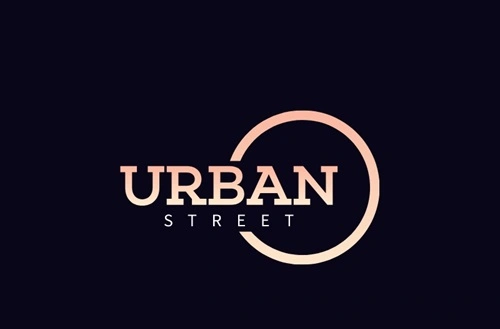Urban Company (formerly UrbanClap), founded in 2014 by Abhiraj Bhal, Varun Khaitan, and Raghav Chandra, is India’s largest home services platform. Headquartered in Gurugram, the company connects users with trained professionals for services like beauty, home cleaning, repairs, and maintenance. Operating in multiple countries, including India, UAE, Australia, and Singapore, Urban Company has redefined the gig economy by offering convenient and reliable home services. This article delves into Urban Company’s business model and explores how it earns money.
Overview of Urban Company’s Business Model

Urban Company operates on a B2C (Business-to-Consumer) platform model, connecting customers with vetted and trained service professionals. Its business model revolves around:
- Two-Sided Marketplace: A platform that brings together service providers and customers for various home and personal services.
- Standardized Offerings: Ensuring quality and consistency through training, equipment provision, and transparent pricing.
- Asset-Light Model: Urban Company does not employ service professionals directly but acts as an aggregator, enabling scalability.
- Technology-Driven Operations: Leveraging its app and website to offer seamless booking, real-time tracking, and secure payment options.
The company’s focus on quality, convenience, and trust has made it a household name in the urban services segment.
Revenue Streams
Urban Company generates revenue through a variety of channels:
a) Commission from Service Providers
Urban Company’s primary revenue source is the commission it charges from service providers on every booking. This commission typically ranges from 20% to 35% of the service fee, depending on the category and professional’s earnings.
How it works:
- Service professionals list their services on the platform.
- Urban Company retains a percentage of the total payment made by customers for each successful booking.
This model incentivizes high-quality service delivery, as professionals earn better ratings and more bookings.
b) Service Charges from Customers
Urban Company charges customers a convenience or platform fee for availing its services. This fee is either included in the service cost or added as a separate charge.
Revenue Source:
- The fee varies by service type and location and contributes directly to the company’s revenue.
c) Subscription Plans
Urban Company offers subscription-based membership plans to customers, such as:
- UC Plus Membership: Offers benefits like free delivery, priority booking, and discounts on services.
Revenue Source:
- Customers pay an annual or monthly subscription fee for exclusive perks.
d) Training and Equipment Fees
Urban Company invests in training its professionals to ensure standardized services. The company charges professionals for:
- Training programs designed to enhance their skills.
- Equipment and supplies provided for specific services, such as beauty kits or cleaning tools.
Revenue Source:
- One-time or recurring fees for training and equipment rentals or purchases.
e) International Operations
Urban Company earns revenue from its operations in global markets, including the UAE, Singapore, and Australia. These markets often have higher service charges, contributing significantly to the company’s revenue.
f) Partnership and Advertising
Urban Company collaborates with brands for co-branded campaigns and promotions. These partnerships often include:
- Displaying sponsored products during bookings (e.g., cleaning solutions, beauty products).
- Partnering with equipment manufacturers for in-app promotions.
Revenue Source:
- Advertising fees and revenue-sharing agreements with partner brands.
g) Product Sales
Urban Company offers consumable products like cleaning supplies, beauty kits, and wellness items directly to customers and professionals.
Revenue Source:
- Revenue from direct product sales and markups.
h) Bulk and Corporate Services
Urban Company caters to businesses by providing bulk services such as office cleaning, facility management, and employee wellness programs.
Revenue Source:
- Contracts with corporate clients generate consistent and high-value revenue.
Cost Structure
Urban Company’s cost structure includes:
a) Technology and Infrastructure
- Developing and maintaining its app and website.
- AI and data analytics for matching customers with professionals and optimizing operations.
b) Service Provider Onboarding and Training
- Screening, onboarding, and training service professionals.
- Costs associated with skill development programs and equipment provision.
c) Marketing and Customer Acquisition
- Spending on digital ads, influencer collaborations, and referral programs to attract new customers.
- Customer retention campaigns, including discounts and loyalty programs.
d) Operational Costs
- Support staff for customer care and dispute resolution.
- Managing partner payouts and ensuring timely payments to professionals.
e) Expansion Costs
- Entering new markets involves investments in marketing, localization, and infrastructure.
Unique Features Driving Revenue Growth
Urban Company employs several strategies to sustain growth and maximize revenue:
a) Standardized and Reliable Services
By training service providers and offering standardized pricing, Urban Company ensures a consistent customer experience, building trust and loyalty.
b) Technology Integration
- AI-powered algorithms ensure efficient customer-professional matching.
- Real-time tracking, easy rescheduling, and secure payments enhance the user experience.
c) Wide Range of Services
Urban Company offers over 50 service categories, including beauty, home cleaning, appliance repairs, pest control, and wellness, diversifying its revenue streams.
d) Subscription and Loyalty Programs
Membership programs like UC Plus encourage repeat bookings, increasing customer lifetime value.
e) International Expansion
Urban Company’s presence in high-value global markets contributes significantly to its revenue, with plans to further expand its international footprint.
Challenges and Opportunities
Challenges
- Intense Competition: Competing with local service aggregators and niche players in various categories.
- High Customer Expectations: Maintaining consistent service quality across geographies is challenging.
- Retaining Service Professionals: Ensuring the satisfaction and retention of service partners in a competitive gig economy.
Opportunities
- Rising Urbanization: The growing demand for professional home services in urban and semi-urban areas.
- B2B Opportunities: Expanding corporate service offerings, especially in facility management and employee wellness.
- Technological Advancements: Leveraging AI and machine learning for further personalization and operational efficiency.
- New Service Categories: Introducing additional services, such as elder care, pet grooming, and fitness training.
Financial Overview
Urban Company has raised significant funding from global investors, achieving a valuation of over $2 billion (as of the latest reports). The company continues to invest in expansion, technology, and service quality, demonstrating steady growth in both revenue and customer base.
Conclusion
Urban Company’s business model successfully integrates technology, trust, and convenience to create a robust marketplace for home services. By focusing on quality, affordability, and a seamless customer experience, the platform has become a leader in its domain. With its ongoing expansion into new geographies, corporate services, and innovative offerings, Urban Company is well-positioned to sustain its growth and remain a dominant player in the global home services market.

